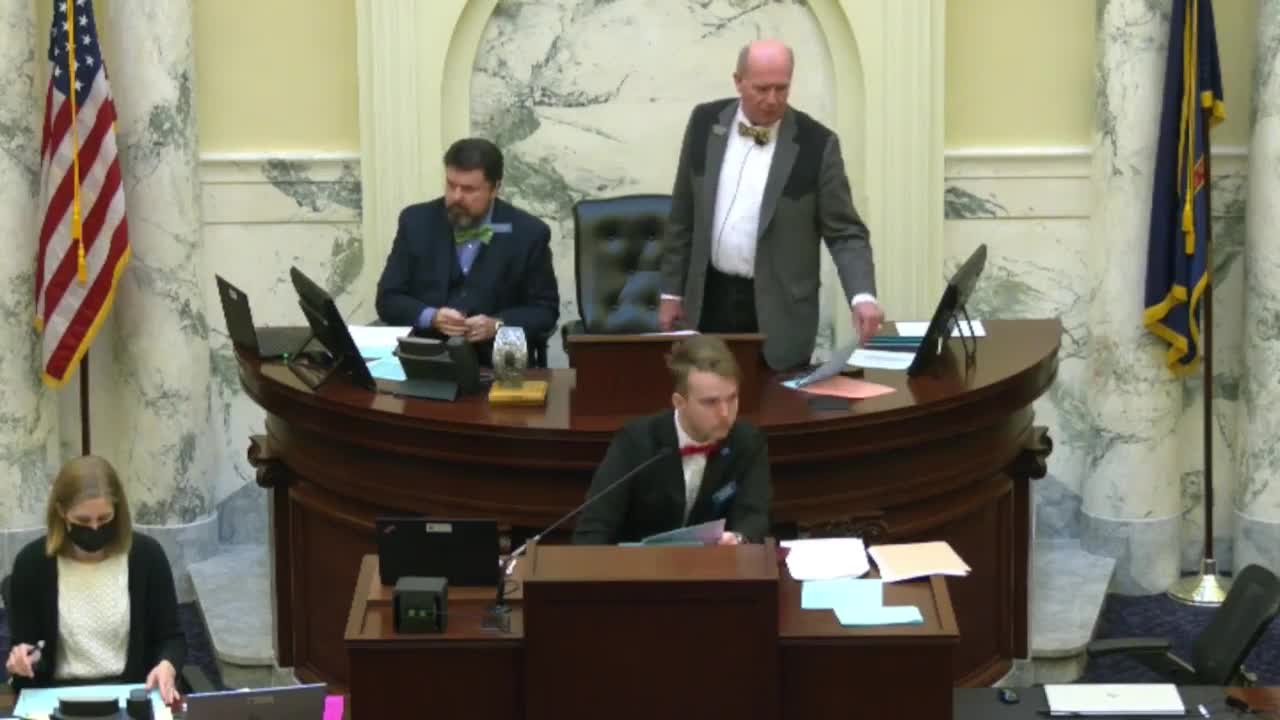House approves bill allowing recreation-district boards to request dissolution elections
Get AI-powered insights, summaries, and transcripts
Subscribe
Summary
The Idaho House on Feb. 7 passed House Bill 102, which adds a board-driven option to the petition process for dissolving recreation districts. Supporters said the change reduces an onerous signature threshold; opponents warned it could make districts vulnerable and risk local services such as pools and youth programs.
The Idaho House of Representatives on Feb. 7 passed House Bill 102, a measure that lets a majority of a recreation-district board petition county commissioners to place a dissolution question before voters as an alternative to the current 20% petition-signature requirement. Representative, District 21 (bill sponsor) presented the measure. The House recorded the outcome as 56 ayes, 13 nays, 1 absent; the bill will be transmitted to the Senate.
Supporters said the bill reduces a practical barrier to formally dissolving inactive recreation districts. Representative, District 21 (bill sponsor) told colleagues that in some districts the 20% signature requirement has grown from roughly 1,000 signatures in the 1970s to “over 19,000 signatures” today for a Meridian-area district, making citizen petitions effectively impracticable. The sponsor said the change is optional and does not automatically dissolve any district: “This is not anti rec district. If you like all the good things that they're doing for the kids and swimming, that's great. This does not dissolve anyone. It just gives a different step,” the sponsor said on the House floor.
Opponents raised concerns about local turnout and the possibility that a small, organized group could force dissolution without broad community support. Representative, District 26 said he had discussed the proposal with recreation districts in Jerome and Blaine counties and warned of lost services, listing swim programs, senior-activity offerings and youth sports participation counts as examples of what could be at risk: “I worry about losing those 2 districts and the value that those districts bring into my community,” he said. Representative, District 10 said the deeper problem is low turnout for local elections, warning that a concerted effort by a few people could “get it on the ballot to dissolve a district with nobody really knowing about it.”
The bill revises the first step of the current two-step dissolution process to allow either (a) the existing 20% petition of qualified electors or (b) a petition by a majority of the district board asking the county to hold the vote; the second step — a public vote — remains unchanged. The sponsor told members that the statutory election timing references Idaho Code section 31-43-04 (primary in May, general in November) for how the vote would be scheduled.
Supporters argued the option would help districts that have already transferred assets to cities or otherwise no longer operate, while critics said the change is a statewide fix for what they view as a local problem. After closing debate, the House voted to pass the bill and ordered it sent to the Senate for consideration.
Votes at a glance
- House Bill 102 — Motion to pass: Passed the House (56 ayes, 13 nays, 1 absent). The clerk reported the tally on the House floor and the bill will be transmitted to the Senate.
Context and next steps
If Senate committees and the full Senate approve the measure, the procedural change would become law after the normal enactment process. The bill does not change the second step (the vote of the people) or alter formation procedures for new recreation districts; it adds an alternate pathway in the first procedural step.
